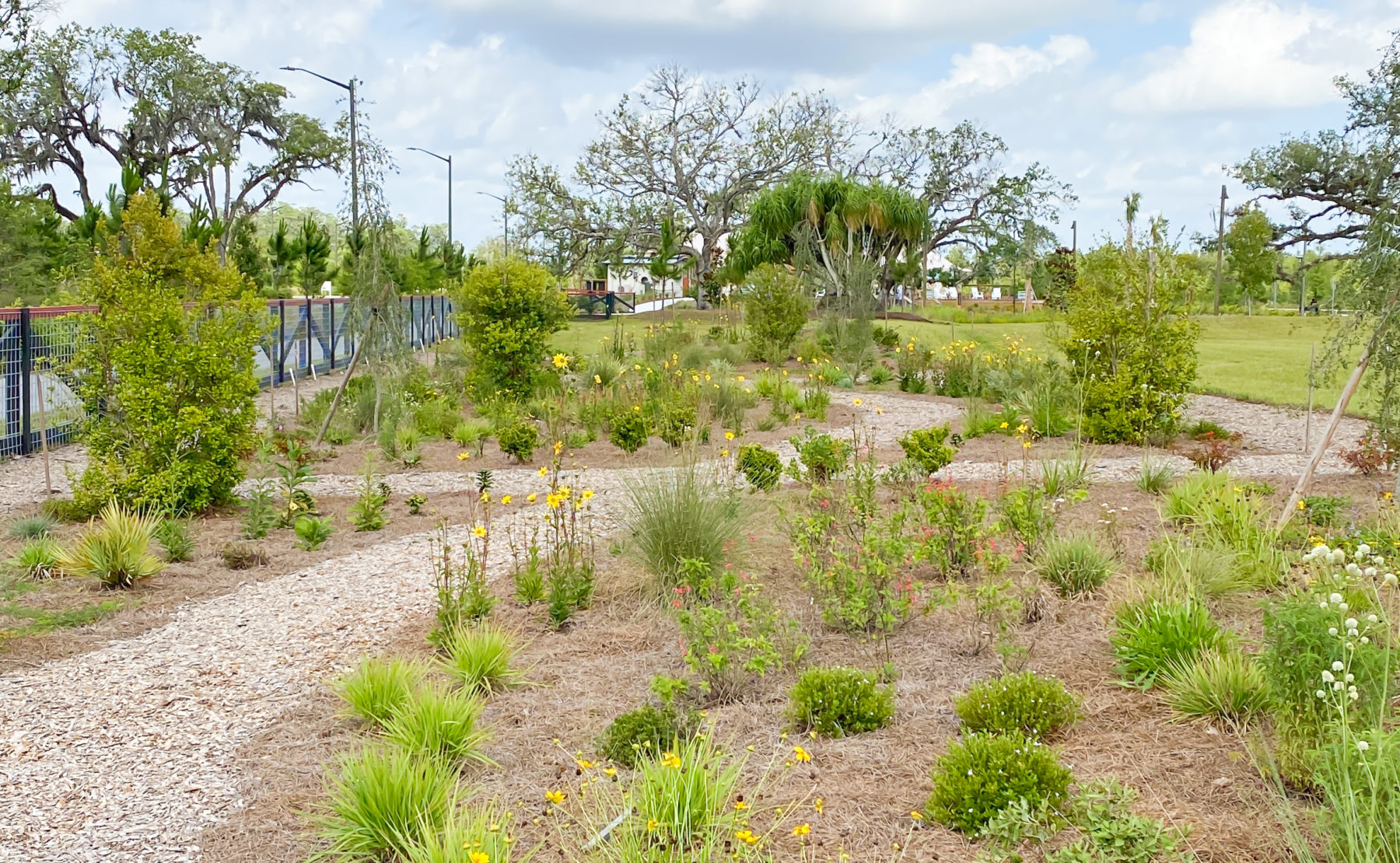
In the News: University of Florida researchers test landscaping that saves water, money
ST. CLOUD, Fla. – University of Florida landscaping research is helping to save water, money, and the changing climate.
“I’ve been gardening my whole life, since I was a pre-teen with my grandparents,” Brooke Moffis said.
That’s why Moffis said she decided to make gardening a career.
She works as a UF Institute of Food and Agriculture Sciences extension agent in Lake County.
News 6 spoke to her as he examined her “laboratory” near St. Cloud, where she and other UF researchers are helping to cultivate landscaping that is beautiful and relies mostly on rainwater.
“I’m checking to see how dense the soil is,” she said. “We call it bulk density — how compact it is.” Moffis is quick to point out this landscaping is not new. The plants are actually native to Central Florida.
“One of my favorites is the Starry Rosinweed that we see over that we see over here,” she said. “That’s what that yellow flowers are. They bloom heavily.” She said they attract birds, bees and other native insects. “The Firebush is great for attracting hummingbirds,” she said.
LANDSCAPING AT WORK
Tavistock Development decided to use these native plants in Sunbridge Weslyn Park — one of their new communities just down the street from Moffis’ lab.
“We’re looking at a model home that has the alternative landscape,” Richard Levey said. Levey helped develop Weslyn Park. “Everybody kind of knows what the cost is to maintain a lawn,” he said. “Here, it’s different.”
Here, Tavistock is only using native plants, while the sod is left on the pallet. “Water consumption on the outside of the home exceeds water consumption on the inside of the home,” he said. “I don’t think people realize that at all. I think their irrigation timers are set.”
THE SAVINGS
UF Researcher Basil Iannone said the plants do not just save water. “My background was in ecological restoration, trying to restore habitats that humans have destroyed,” he said. Iannone said the plants also eliminate pollution from weed whackers, lawnmowers and chemicals from fertilizer.
Read the original story at WKMG/Click Orlando.
What’s Happening